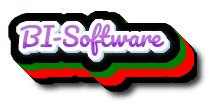In today’s fast-paced and ever-evolving business landscape, Customer Relationship Management (CRM) systems have become an essential tool for companies to manage their interactions with customers, prospects, and partners. The traditional approach to CRM has been to implement a rigid, monolithic system that is often inflexible and difficult to adapt to changing business needs. However, with the advent of agile software development methodologies, a new approach to CRM has emerged: Agile Software CRM.
<img src=”https://blog.kintone.com/hs-fs/hubfs/Agile%20process%20overview.png?width=985u0026name=Agile%20process%20overview.png” alt=”Introduction to Agile Software CRM” />
What is Agile Software CRM?
Agile Software CRM is a customer relationship management approach that incorporates the principles of agile software development, such as iterative and incremental development, continuous improvement, and flexibility. Agile Software CRM is designed to be adaptable, scalable, and responsive to changing business requirements. It enables companies to respond quickly to customer needs, improve customer satisfaction, and increase revenue.
Key Characteristics of Agile Software CRM
Agile Software CRM has several key characteristics that distinguish it from traditional CRM approaches:
- Iterative Development: Agile Software CRM is developed in iterative cycles, with each cycle focusing on delivering a specific set of features or functionality.
- Continuous Improvement: Agile Software CRM is designed to be continuously improved, with regular updates and enhancements based on customer feedback and changing business requirements.
- Flexibility: Agile Software CRM is highly flexible, allowing companies to adapt the system to their unique business needs and processes.
- Customer-Centric: Agile Software CRM is customer-centric, focusing on delivering exceptional customer experiences and building strong, long-term relationships with customers.
- Collaboration: Agile Software CRM encourages collaboration between different teams and stakeholders, including sales, marketing, customer support, and IT.
Benefits of Agile Software CRM
Agile Software CRM offers several benefits to companies, including:
- Improved Customer Satisfaction: Agile Software CRM enables companies to respond quickly to customer needs, improve customer satisfaction, and increase loyalty.
- Increased Revenue: Agile Software CRM helps companies to identify new sales opportunities, improve sales conversion rates, and increase revenue.
- Enhanced Collaboration: Agile Software CRM encourages collaboration between different teams and stakeholders, leading to better communication, improved processes, and increased productivity.
- Reduced Costs: Agile Software CRM helps companies to reduce costs by streamlining processes, eliminating manual data entry, and automating routine tasks.
- Improved Analytics: Agile Software CRM provides real-time analytics and insights, enabling companies to make data-driven decisions and optimize their sales and marketing strategies.
How to Implement Agile Software CRM
Implementing Agile Software CRM requires a structured approach, involving the following steps:
- Define Business Requirements: Define the business requirements and goals of the Agile Software CRM implementation.
- Choose a CRM Platform: Choose a CRM platform that supports agile software development methodologies, such as cloud-based CRM solutions.
- Design the System: Design the Agile Software CRM system, including the user interface, workflows, and integration with other systems.
- Develop the System: Develop the Agile Software CRM system, using agile software development methodologies such as Scrum or Kanban.
- Test and Deploy: Test and deploy the Agile Software CRM system, with continuous monitoring and improvement.
Common Challenges of Agile Software CRM
While Agile Software CRM offers several benefits, it also presents some common challenges, including:
- Data Quality: Ensuring data quality and integrity is a major challenge in Agile Software CRM, as poor data quality can lead to inaccurate analytics and insights.
- System Integration: Integrating Agile Software CRM with other systems, such as marketing automation or customer support software, can be complex and challenging.
- User Adoption: Encouraging user adoption and ensuring that users are properly trained on the Agile Software CRM system is essential for success.
- Scalability: Ensuring that the Agile Software CRM system can scale to meet growing business requirements is critical, as the system must be able to handle increased data volumes and user traffic.
- Security: Ensuring the security and integrity of customer data is a major concern in Agile Software CRM, as companies must comply with regulations such as GDPR and HIPAA.
FAQs
Q: What is Agile Software CRM?
A: Agile Software CRM is a customer relationship management approach that incorporates the principles of agile software development, such as iterative and incremental development, continuous improvement, and flexibility.
Q: What are the benefits of Agile Software CRM?
A: Agile Software CRM offers several benefits, including improved customer satisfaction, increased revenue, enhanced collaboration, reduced costs, and improved analytics.
Q: How do I implement Agile Software CRM?
A: Implementing Agile Software CRM requires a structured approach, involving defining business requirements, choosing a CRM platform, designing the system, developing the system, testing and deploying the system, and continuous monitoring and improvement.
Q: What are the common challenges of Agile Software CRM?
A: Common challenges of Agile Software CRM include data quality, system integration, user adoption, scalability, and security.
Q: Can Agile Software CRM be customized to meet my company’s specific needs?
A: Yes, Agile Software CRM can be customized to meet your company’s specific needs, as it is flexible and adaptable.
Conclusion
Agile Software CRM is a powerful approach to customer relationship management that offers several benefits, including improved customer satisfaction, increased revenue, enhanced collaboration, reduced costs, and improved analytics. By incorporating the principles of agile software development, Agile Software CRM enables companies to respond quickly to changing business requirements and deliver exceptional customer experiences. While Agile Software CRM presents some common challenges, such as data quality and system integration, these can be overcome with careful planning, implementation, and ongoing monitoring and improvement. As the business landscape continues to evolve, Agile Software CRM is likely to become an essential tool for companies seeking to stay ahead of the competition and deliver exceptional customer experiences.
<h2>Closure</h2>
Thus, we hope this article has provided valuable insights into Introduction to Agile Software CRM. We hope you find this article informative and beneficial. See you in our next article!
